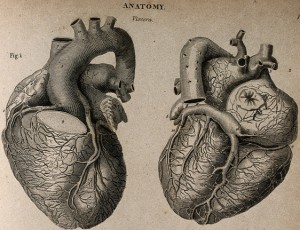
Every year, nearly 8 million people die from sudden cardiac death, which is defined as the unexpected death of a seemingly healthy person due to malfunctions in the heart’s electrical system and loss of cardiac function. Although sudden cardiac death (SCD) is usually associated with mature adults, SCD claims thousands of young lives every year. In most cases, the cause of death can be determined by autopsy or toxicological analysis, but up to 30% of these premature deaths have no apparent cause, leaving medical examiners and family members of the young victims to wonder what happened.
In cases where traditional pathological examinations cannot provide insight into causation, medical examiners are increasingly turning to molecular autopsies to determine if there is an underlying genetic factor that contributed to a person’s death.
Continue reading “Molecular Autopsies in the Whole Genome Sequencing Era”